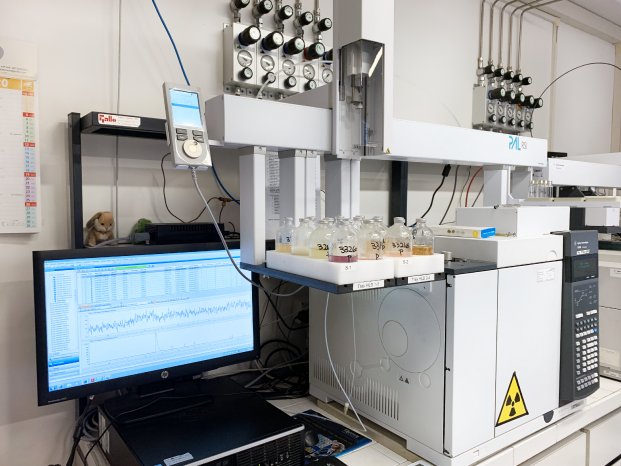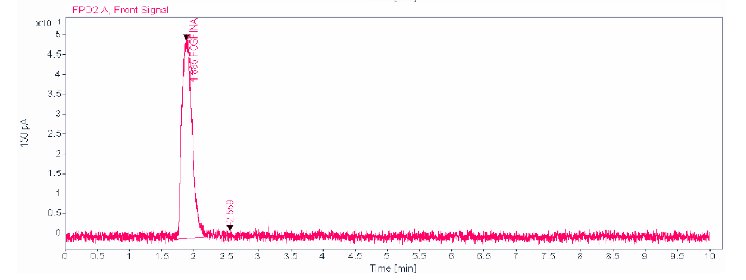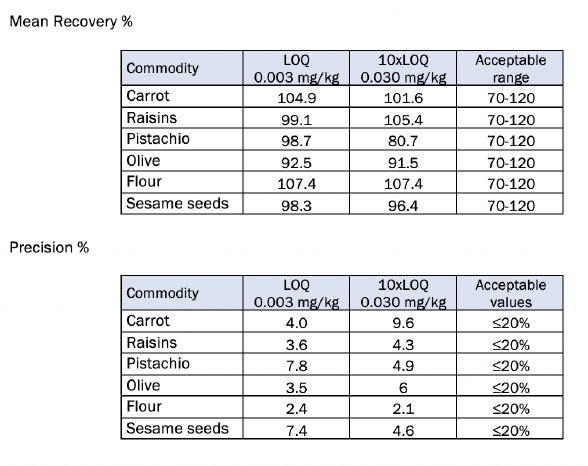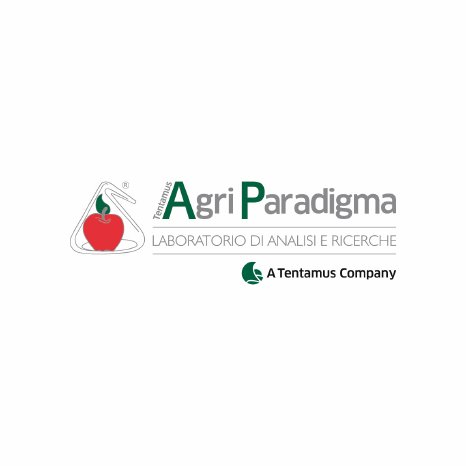Phosphine is one of the most widely used fumigants. EU legislation sets maximum residue limits for the sum of phosphine and phosphides in foodstuffs within a range of 0.01 to 0.7 mg/kg, depending on the commodity. Several methods have been described for the analysis of phosphine, but currently no ISO or EN standard methods are available.
For this reason, the laboratory of Tentamus Agriparadigma has developed its own method based on the most recent scientific literature.
The method involves the development of phosphine from the sample by acid treatment and the subsequent determination of the gas by gas chromatography of the head space with a pulsed flame photometric detector and phosphorus filter.
To increase the representativeness of the sample, 100 ml bottles were used which required the use of a customized autosampler. The developed phosphine is taken from the autosampler with a gas syringe and analyzed by gas chromatography with a specific column for the analysis of volatile compounds.
The experts at Tentamus Agriparadigma have decided to use the (pulsed) flame photometry detector with phosphorus filter (PFPD). This particular type of detector is extremely specific.
The result is an extreme sensitivity, the absence of interfering signals and a linear response over a wide concentration range. All the steps have therefore been optimized to allow shorter analysis times and to increase productivity.
The method has been validated on numerous matrices of plant origin in accordance with the SANTE / 12682/2019 guidelines.
The limit of quantification was chosen equal to 3µg / kg (lowest validated concentration)
Accreditation according to ISO 17025:2018 is expected within 2020, which will make Tentamus Agriparadigma the first laboratory of the Group in Italy to have this important parameter accredited.
If you would like more information about this topic, please contact our expert Gian Piero Luciani.
About Tentamus Agriparadigma s.r.l .:
Tentamus Agriparadigma is an analysis laboratory with in-depth experience in performing analyzes on food, feed, water and soil. The laboratory is accredited 17025 by Accredia for the chemical and biological analysis on hundreds of different methods. More info at www.agriparadigma.it




